and a few predictionsState of XR 2023
Since everyone is doing their predictions for 2023, I decided to wait until after CES where a lot of things are announced. But finally, here are my 2 bits.The state of VR is ‘stable’ in my eyes. Consumer VR devices have gotten their user bases and are growing steadily, even that a bit slower than in the previous years. People who want to use VR for gaming can get a device for reasonable prices with wide libraries of games. Same goes for social VR and platforms like VRChat are growing steadily. VR is established in the enterprise scene, as there are numerous practical uses to VR that are being adopted by enterprises world-wide. VR is being used for training, product design, simulations and so on. The key challenge for VR is more adoption - and possibly making devices that will attract new sorts of people. Maybe turning VR into a general productivity tool? More on that later.

Magic Leap 2 is said to be the best AR headset on the market currently
I’m not much of an AR guy, but the way I see the market, there are still 2 main competitors - Microsoft and Magic Leap, both with second generation devices. Both cost way too much for consumers or small businesses, so there are niche use cases for them within enterprise markets. I haven’t been watching that market carefully, but if it has been growing in the past years, I expect it to continue. For a consumer AR device, someone needs to be able to make it at a consumer friendly price point (not 3K USD for ML2 or HL2), that will happen someday, but I have my doubts about 2023.Metaverse can be a separate trend. When I got into VR in 2013, we knew we’d be ultimately building the metaverse. When the technology matures enough and is adopted. The internet as we know was designed for 2D screens, later adapted from bigger computer screens to smaller cell phone screens. But for the future we need a way to communicate in 3D, which will unlock a lot of new possibilities. The tech - VR headsets for everyday use that are widely adopted - is still not there. When Facebook was renamed to Meta, it created a buzzword out of metaverse (the term is from 1992 novel Snow Crash, BTW), with many metaverse companies appearing overnight. Later, Web3 people successfully hijacked the term, which led to an adverse stance towards the term metaverse from serious XR players, many avoiding the term completely . Maybe it’s best demonstrated by Boz, Meta’s CTO and leader of Reality Labs, blog post “Why we still believe in the future” not mentioning metaverse even once.. The metaverse is coming, probably not anytime soon and my bet is, it won’t have anything to do with blockchain, crypto or NFTs, but it might even not be called metaverse by then.
major players in 2023?
Meta
Meta conquered the gaming market with Quest 2, making VR not just a novelty item, but viable competition to gaming devices such as Nintendo Switch. Gamers who desire VR can afford one at a reasonable price point with a decent collection of games. This year a Quest 3 is coming out and will advance things a bit more - new processor (Snapdragon XR2 Gen 2), new lenses (pancake lenses probably same as Quest Pro), a bit better displays. Basically, Meta can stay in the gaming business, release a new Quest once a few years and do similar biz console makers, long term and sustainably. But that’s not their goal.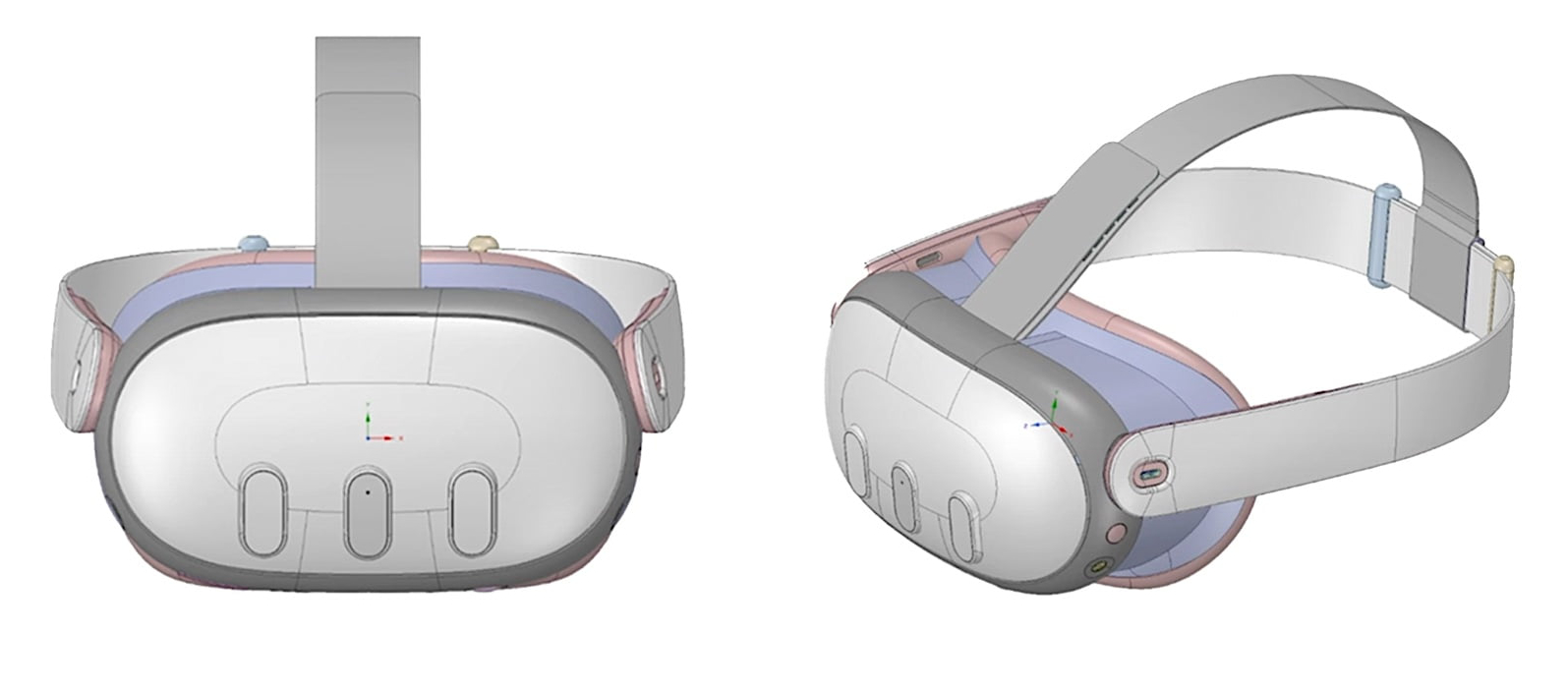
Meta Quest 3 in leaked CAD drawings
Last year Meta released Quest Pro with a mission to be a prosumer productivity device. Quest Pro is a bit of a mess, as while it tries to not be a gaming console, it’s the only thing it does decently. This year I would expect a lot of software updates regarding Quest Pro, app releases trying to make it more of a productivity tool than a gaming device. My personal opinion is that Meta is having problem with lack of leaders. From Palmer Luckey, who was fired due to his political views in 2016, to the latest departure of John Carmack, who was ‘tired of the fight’ and left last year, to everyone else from the original team gone. Metas approach to “just throw money” is not a long term solution in the software industry. Sure, you can pay Microsoft to port their apps to your platform. You can pay Accenture to try to find use cases for VR in companies. I don’t think this is the right approach, but time will tell.Apple
Apple has been rumored to release their own VR headset for a long time - I think the first rumor I’ve heard is from 2016. The rumors intensified over last year, from insider sources to supply chain analysis, we've got to see some leaked photos, even that they seems fake, there is working VR shell in iOS, all that points to there being some chance we will see an Apple headset in 2023, some sources claim as early as March, but not hold your breath.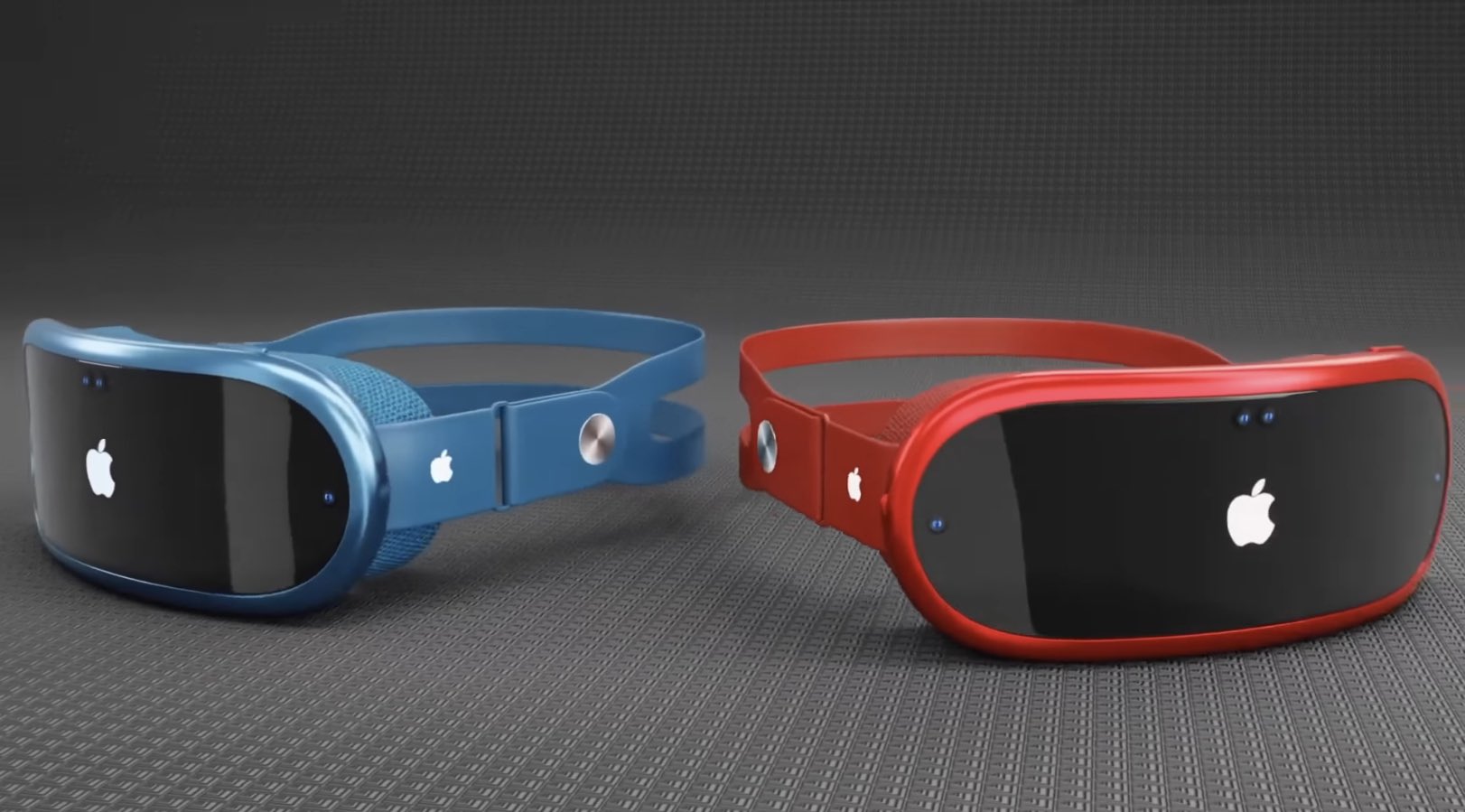
Apple Reality Pro, based on leaks
As I said earlier, VR is stable in several groups - gamers, VR enthusiasts and niche enterprise uses and in order to grow, it needs to be break into new audiences. Apple headset would do just that. With more people in XR, the possibilities would also grow.Valve
Valve has always been VR's biggest innovator. The original HTC Vive, which brought motion controllers, roomscale or 360 experiences, should have been called Valve Vive instead. The 2019 Valve Index once again pushed the bar forward in many surprising ways - from pancake lenses, to off-ear audio with loads of other improvements. That was 4 years ago. Rumors say that Valve has a standalone headset codenamed Deckard in development, with numerous leaks, patents or job postings hinting at it’s existence. Last year Valve Released a Steam Deck - handheld console utilizing a custom APU by AMD, based on Zen2 CPU and RDNA CPU. When asked about relevance to a standalone VR headset, Valve said “it’s very relevant to their future plans”.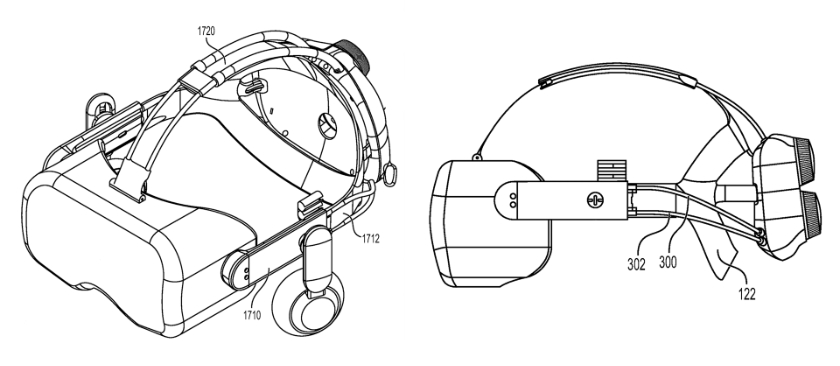
Valve Deckard as shown in patent images
I would say Deckard could be a subtle gamechanger for many things. PC based architecture, Linux operating system and generally open environment are main points. All other standalone headsets are based on Android, which I don’t believe is the right long term choice - last of multitasking, robustness and generally closeness. I believe a VR linux shell, if executed correctly, could make VR a very powerful productivity device. And since it's a Valve device, it will be a very powerful gaming console as well. And because of general openness there might be a few surprises as well. There is no guarantee we will see Deckard in 2023, or that we will ever see Deckard at all. Or that it will be Linux based. All is pure speculation.
Controller images shows classic tracking ring for inside-out tracking
One problem at Valve is also a chaotic structure and lack of clear goal. For PCVR space, Valve created a very powerful tracking system (SteamVR Tracking 2.0), probably the best controllers on market (Index Controllers or Knuckles). There are many third party headsets with SteamVR tracking compatibility (Vive family, Pimax, Varjo…), but will Valve support these companies by selling them base stations or controllers? Or allow bulk purchase of products for enterprise. Or even issue a VAT invoice? The answer is no. While Valve is probably happy with Steam and doing what they do, they could contribute a lot more to the ecosystem, if they wanted to.HTC
Let’s start with a bit recap about HTC current market position. HTC lost its smartphone market a long time ago and hasn’t been profitable since 2015. This is not a good position in the VR market, where everyone is playing the long-term game and is able, more or less, to subsidize the products. The original HTC Vive should’ve been called Valve Vive. Vive Pro was the only product HTC developed on its own that's worth mentioning. Vive Cosmos was a mistake, Vive Pro 2 still cannot beat Index, at least Focus is having a decent share in the enterprise market. HTC is in a bad place, because it actually needs to make money on headsets, while its competition doesn’t. So that means they cannot win directly, instead they need to make a different product from the rest. One such attempt was Vive Flow, a low cost, lightweight VR headset for wellbeing apps. It didn’t gain much traction, but a nice try.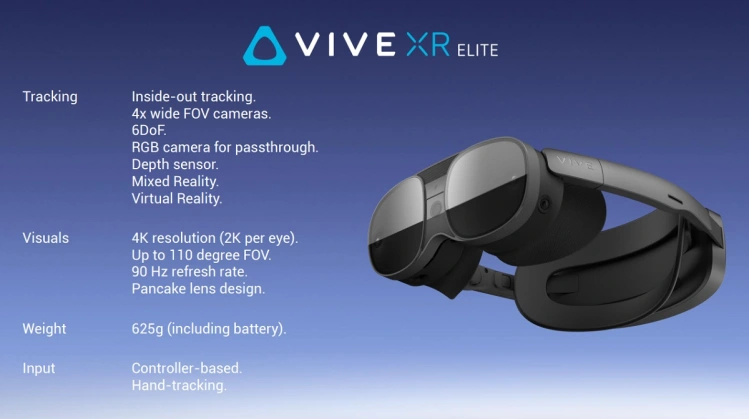
HTC Vive XR Elite
At CES, HTC unveiled Vive XR Elite, a new lightweight headset, high resolution, pancake lenses, with color passthru (and said to be very impressive), at price of 1099 USD. While the initial impressions of many who attended CES seems to be very positive, I know I’ll be getting one for sure. But in the long term, we will see if it can gain enough tracking. Godspeed HTC!Pimax
Pimax is a strange company. In 2017 they ran a Kickstarter for an 8K VR headset having 200 FOV. And they surprisingly managed to deliver just that. Sure, the 200 FOV is said to be diagonal and horizontal is just 160, which is still biggest on market (excl. StarVR, which is out of business). There is a bit of a problem, that it’s for super prosumers. You’ll pay 1300$ for a headset. But you also need a PC to power it and don’t anywhere else, but the absolute end of line. Yes, with Pimax 8KX, on our Geforce RTX 4090 powered setup, we can enjoy VR content in unmatched quality. Not many people can afford this setup.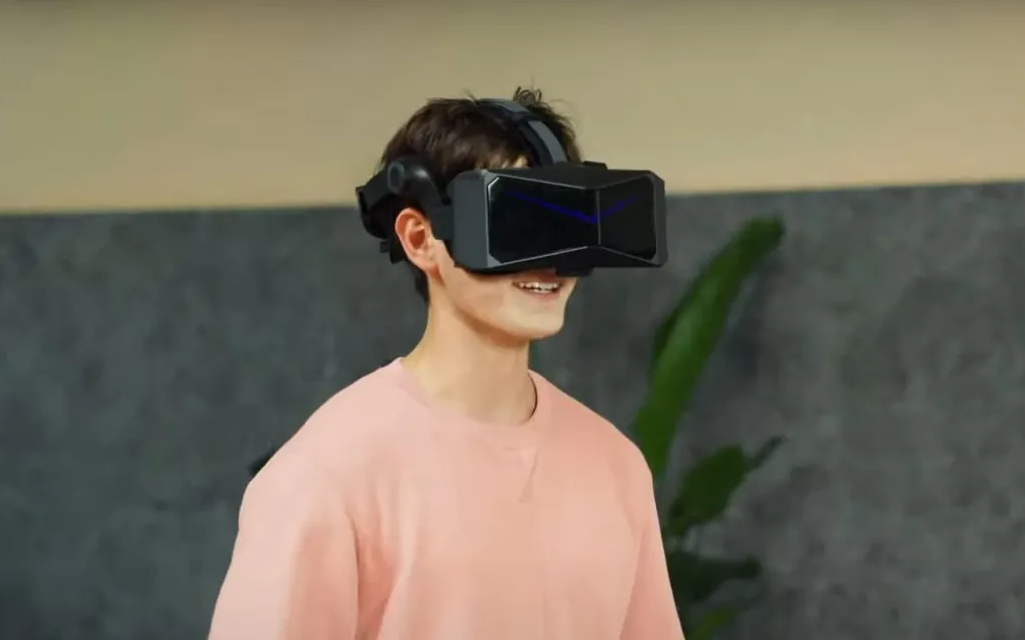
Pimac Crystal at CES
Pimax is planning 2 new products for 2023 - Crystal and Portal. Crystal is a 6K headset, with said 140 FOV. Those who tried initial prototypes were a bit skeptical, but over time Pimax improved their software and the impressions from CES are generally positive. Pimax’s niche has been VR simmers and Crystal seems to be a perfect product for them. With visual clarity said to surpass Varjo. We will see if Pimax will manage to attract a wider audience, even at 1600 USD price tag, I sincerely doubt it.Pimax Portal. Is a convertible between handheld gaming console and VR headset. Very ambitious goal. The initial impressions seems to be that it needs a lot of work.
